Politics And Fashion: Nicholas K. Is The Latest Brand To Fight GOP Policies, Promote Sustainable Fashion
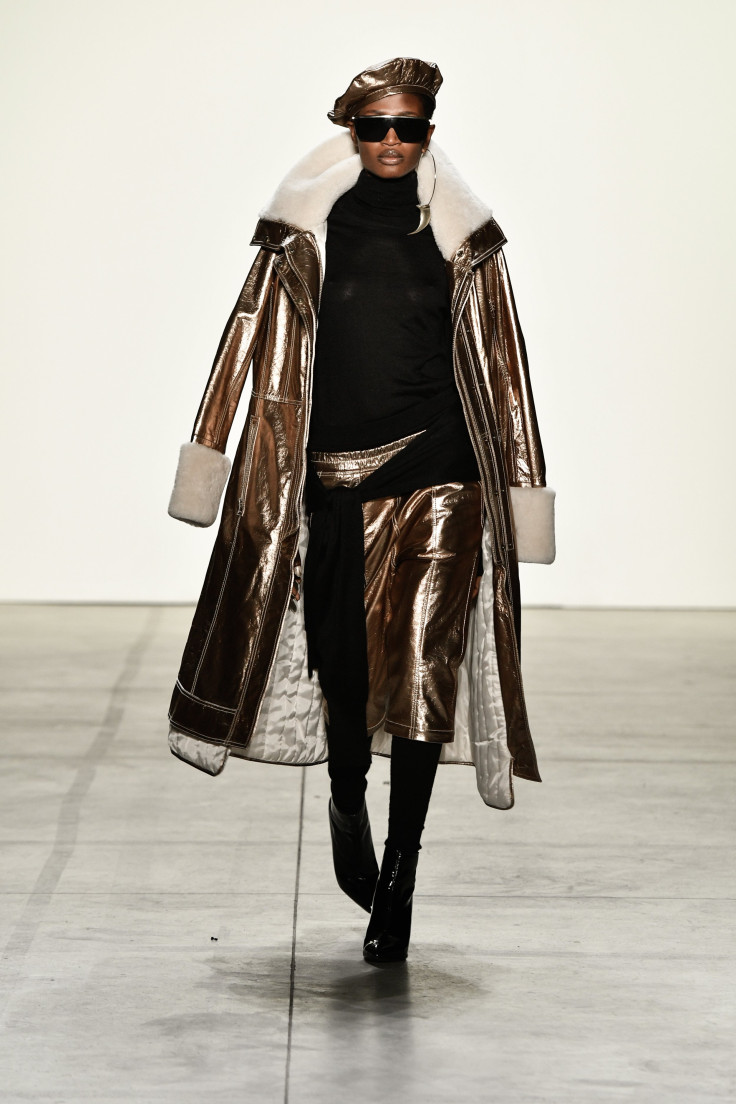
It’s the first official day of New York Fashion Week, and the streets are blanketed in snow. Armies of fashion cognoscenti -- bloggers, editors, stylists -- are jumping from black Escalades over the snow mounds and puddles into a throng of street style photographers outside Skylight Clarkson Square, one of the main show venues hosting the fall/winter 2017 collections in New York City. Despite the inclement weather and snow flurries, the photographers snap away, hoping to capture a discernable shot of a glove or a leather legging-wrapped leg outside the Nicholas K. runway show, the first major designer event of the season.
The excitement and glamor belies the more serious political philosophy of the brand that has set its sights on using its platform to advance sustainability and diversity -- issues that have run counter to President Donald Trump's political agenda. At a time when fashion has been reluctantly thrust into the world of politics, with a former model moving into the White House and major brands and luxury retailers grappling with how to position themselves, Nicholas Kunz and Christopher Kunz, the brother/sister design duo behind the inimitable Nicholas K. brand, are asking consumers to "vote with their purchases."
"On the political side, it seems like we're regressing," Christopher Kunz told International Business Times over the phone a day before the Nicholas K. show opened Thursday at Fashion Week.
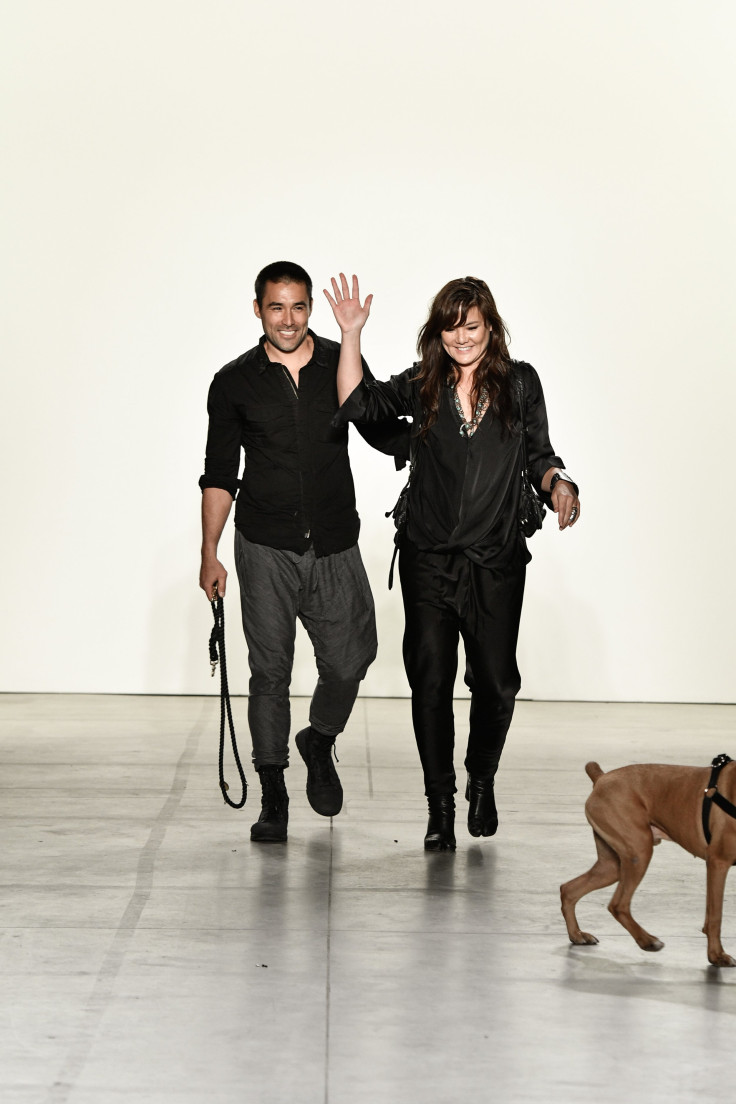
The brand’s newest collection, “Built From Scratch” referenced political and cultural events from the ‘90s, like Nelson Mandela’s release from a South African prison and the “golden age” of hip-hop, an inspiration for the designers. The Nicholas K. pre-show synopsis read, “The late decade’s digital world brought the promise of a global humanitarian community. Recent events seem to unravel this progress and it’s now relevant to revisit the promise of the ‘90s.”
Fashion and politics might seem like ideological foes, with one industry wooing consumers and the other battling over policy, but brands are under growing pressure to address news headlines these days, in part because of the celebrity-driven culture associated with Trump, a former reality TV star with a penchant for explosive rhetoric. That means letting the clothes do all the talking is increasingly not an option for designers and brands. Designers will show their collections at New York Fashion Week through Feb. 16, just days before Trump will have completed his very first month in office. Designers were asked whether or not they would dress first lady Melania Trump and major brands were asked about their opinions on Trump’s immigration ban against some Muslim-majority nations, which could affect models, designers, photographers and other professionals who help drive the industry.
“Designers don’t live in a vacuum, they are not blind to what’s going on,” Vogue magazine editor-in-chief Anna Wintour, a friend of the Trump family who nevertheless endorsed Democrat Hillary Clinton, told the Wall Street Journal in an interview published on the first day of New York Fashion Week. “They, too, will be inspired by what they see and that will come out in their work. The next few years are going to be incredibly creative.”
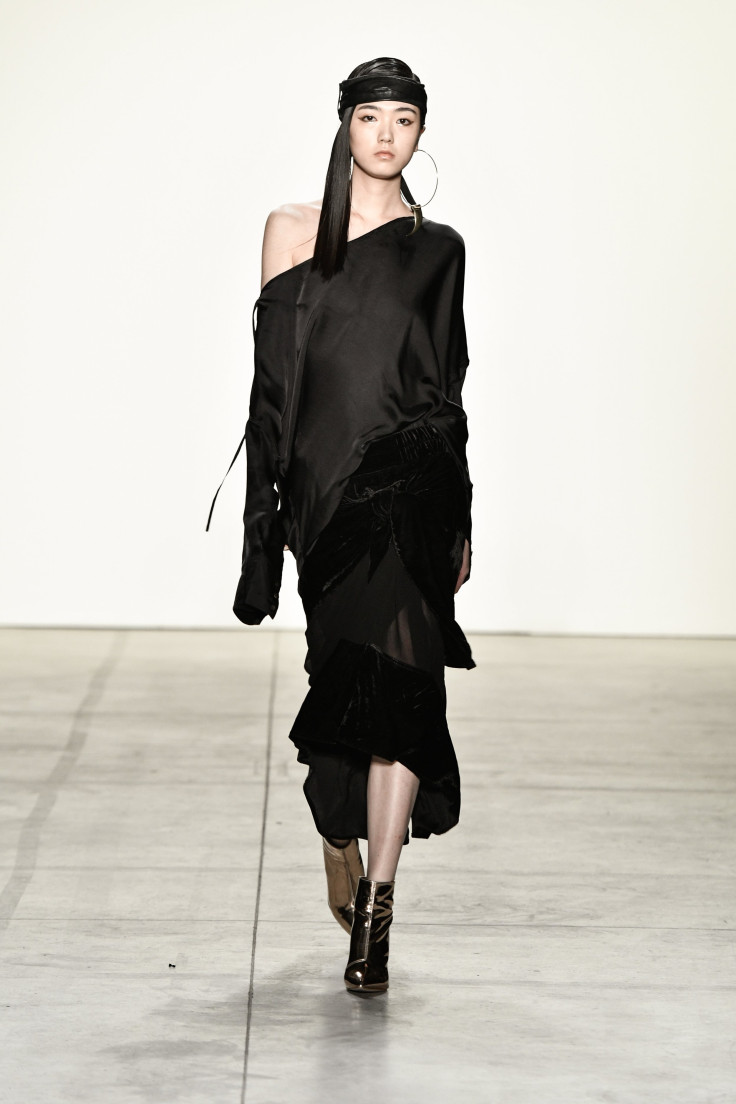
Nicholas Kunz and Christopher Kunz have long been known to use fabrics like organic cotton, vegetable-dyed leathers and natural alpaca hair in their collections of luxurious ready-to-wear garments that can transition seamlessly through the fashion calendar seasons. But amid growing concern about what setbacks environmental initiatives could experience under the new administration, the siblings have also been eager to join the conversation about what role luxury fashion should play during such uncertain times.
“Now we’re doing all of our leathers with vegetable dyes. Except if it’s a special treated leather -- like we have a metallic foil leather this season,” Nicholas Kunz said. “But the majority of it, like 90 percent, is vegetable-dyed,” she said.
“We’re planning a trip to Peru,” Christopher Kunz added.“So we’re actually looking to create a more vertical relationship with suppliers and manufacturers, so then we would have that transparency into the supply chain.”
Unity and diversity was another major theme for the brand's fall/winter 2017 collection. The Kunz siblings have always made it a point to stress inclusivity in their shows, and the models they use are as diverse as the textiles and materials in their apparel. For this year -- and in light of Trump's proposed immigration ban -- the pair wanted to stress "even more" diversity.
“It’s kind of wild to feel like everything is going backward,” Nicholas Kunz said.
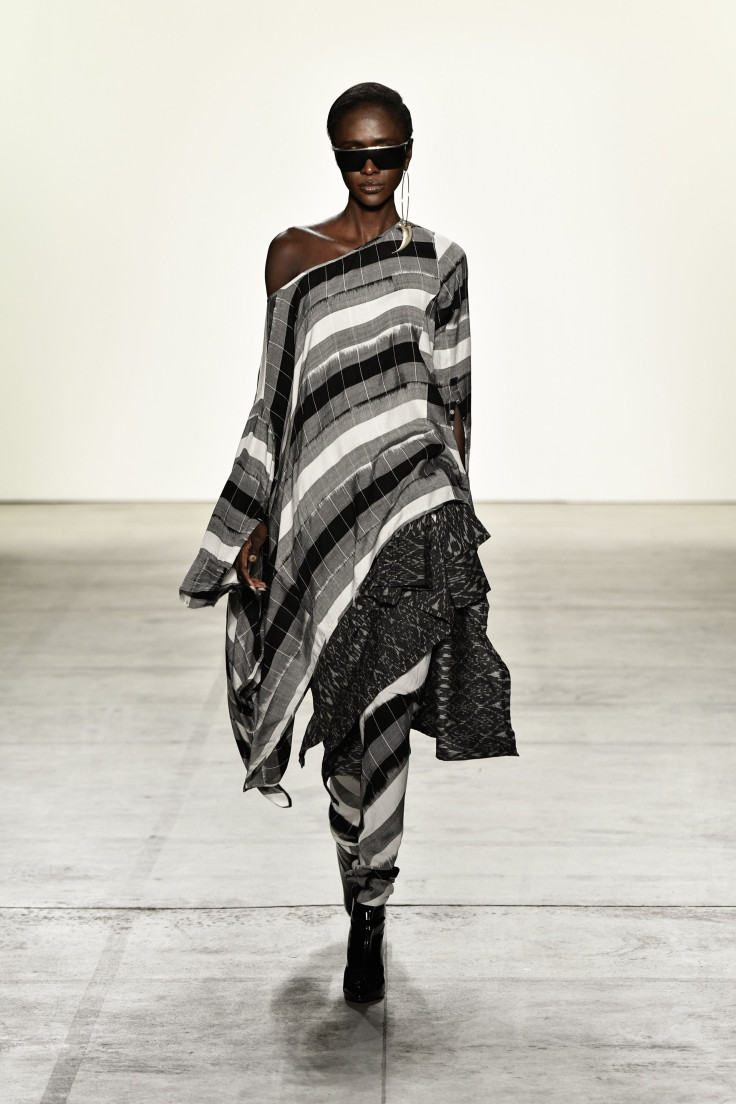
The Kunz siblings’ latest collection coincides with one of the final months the brand will be participating in a program from the Council of Fashion Designers of America Inc., the CFDA + Lexus Fashion Initiative, which focuses on long-term sustainability practices in fashion. Through workshops and mentorships, the 17-month residency program was established to help 10 finalist fashion brands advance their businesses to be more sustainable, aiding them through social, financial and environmental challenges. The designers were tasked with creating business practices and solutions for supply chain transparency, smart sourcing and manufacturing practices and the implementation of sustainable materials. The program, which also includes brands like Brother Vellies and Dezso by Sara Beltran, will officially conclude in April.
For Nicholas Kunz, who studied fashion design at the Fashion Institute of Technology and at Florence's Polimoda School of Design in Italy, sustainability and embracing diversity through the Nicholas K. brand was always the goal.
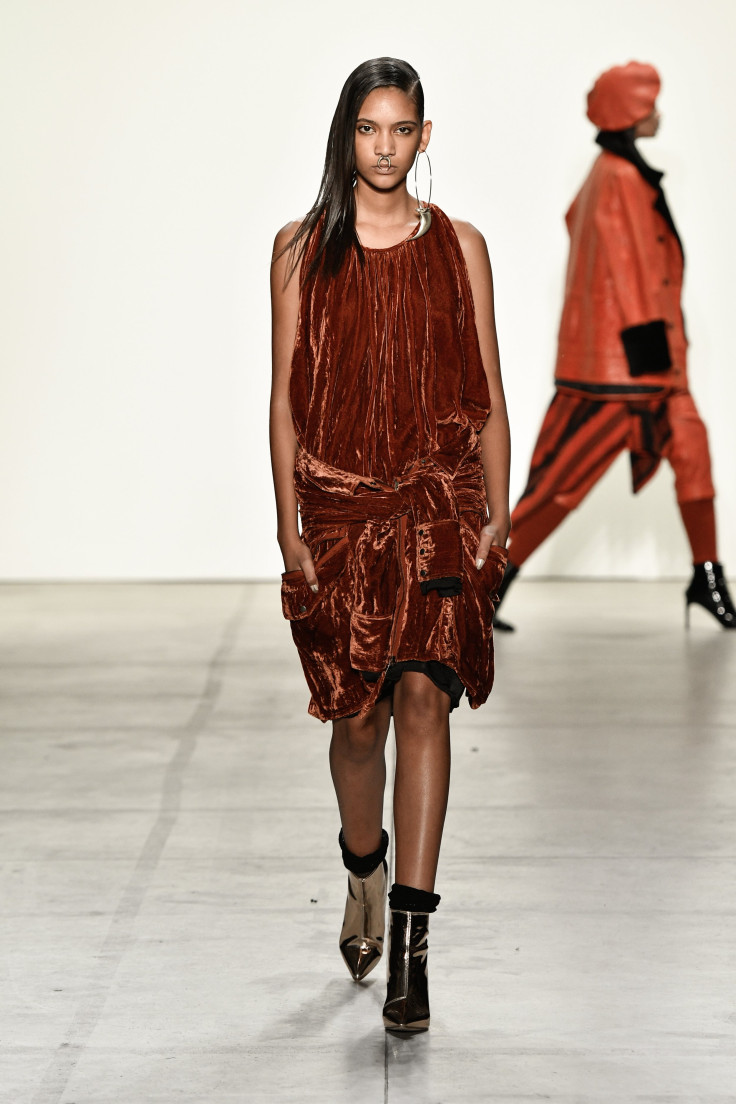
“The first thing we did was change all of our sweater yarns -- our basic sweater yarns which are about 30 percent of our business -- to alpaca. Alpaca is a very sustainable fiber. A lot of the alpaca that we are using is undyed, we wanted to eliminate toxic dying. Then we also converted part of our programs into eco-cashmere -- it’s cashmere but it’s also undyed, so it’s the color of the animal,” Nicholas Kunz said.
The fashion industry as a whole has slowly moved toward a more sustainable future. Luxury company LVMH, whose subsidiaries include Christian Dior and Louis Vuitton, recently implemented an internal carbon fund in 2015 that taxes its brands on greenhouse gas emissions. The money is then earmarked for technology and programs that promote carbon reduction.
The sustainability debate has grown as the rise of fast fashion has helped fuel a spike in disposable fashion that is overcrowding landfills, especially in the U.S. The Environmental Protection Agency followed the total number of materials landfilled in the municipal waste system from 1960 through 2014. In 1960, textiles alone were said to have accounted for about 1,710 thousands of tons of the material. In 2014, about 10,460 thousands tons of textile materials were sent to landfills. Trump, meanwhile, is against EPA regulation.
“I think there needs to be a baseline or a point at which you look at what the environmental cost is versus the monetary cost,” Christopher Kunz said. “A lot of times people will ask, ‘well how much does it cost to make something?’ but they don’t factor in the things like screwing up somebody's groundwater. The one thing about globalization is what we have effectively done has enabled us to buy cheap products, but at a cost to somebody else. In the long term, it’s a cost to everybody because the earth can only take so much long-term abuse. I think that at some point everybody needs to be held accountable for how they make things.”
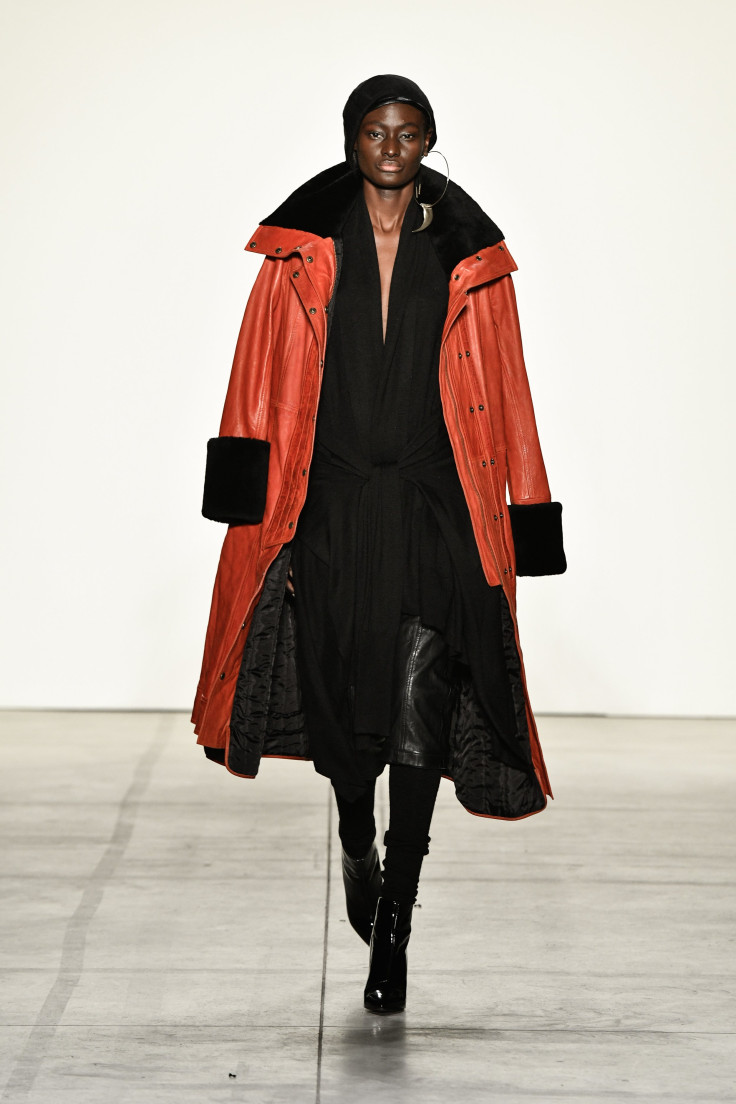
During the siblings' recent show, models took to the runway for Nicholas K. wearing velvet tunics, vegetable-dyed leather berets, shearling coats and neutral-toned sweaters made from natural alpaca. DJ Rob Swift performed live for the audience and was accompanied by rapper Latasha Alcindor.
As the models took their final walk down the runway, Alcindor rapped the chorus, calling for a “revolution,” and posed one final question to the audience: “Are you ready?”
© Copyright IBTimes 2025. All rights reserved.






















